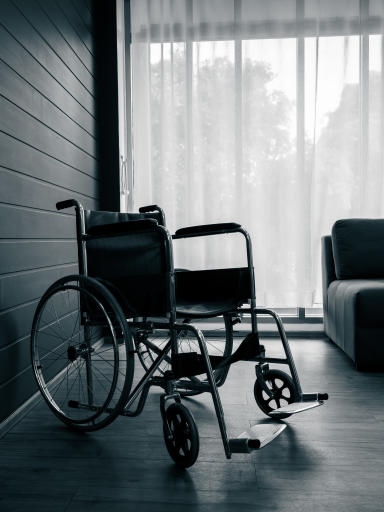Can You Sue a Nurse for Malpractice?

According to research by Johns Hopkins University, approximately 800,000 Americans are injured annually due to medical malpractice. “Medical malpractice” is a term used to describe medical practitioner negligence that leads to patient injury. Because most malpractice claims are filed against doctors or surgeons, many patients wonder: Can nurses also be sued for medical malpractice?
The short answer is yes. Nurses have just as much ethical and professional responsibility to provide a reasonable standard of care for their patients as doctors and surgeons. Because nurses tend to spend more face time with patients than other healthcare providers, there are numerous opportunities for potential harm. If nurses are negligent or cause harm to their patients in any way, their actions are considered medical malpractice and can result in a lawsuit.
How Would a Nurse Commit Malpractice?
While it’s clear how the negligence of doctors and surgeons can cause extreme injury to their patients, it may not be initially obvious how the negligence of nursing staff can potentially present an equivalent danger. The following examples demonstrate how nurses could commit medical malpractice that would result in a patient’s right to file an injury claim.
Not Adhering to Post-Surgery Protocol
Surgeons provide detailed instructions for aftercare following any surgical procedure.If the nurse in charge of a patient fails to follow the care instructions a doctor or surgeon provides, the patient may not properly heal from the procedure. Nurses are held responsible for injuries caused by not following doctor's orders.
Leaving a Patient Unmonitored
One of the most important aspects of a nurse’s job is to monitor the patient during the recovery or treatment period. While they may not always be physically present in the patient’s room, they check in at regular intervals and monitor their condition remotely. If a nurse neglects their patient for an unreasonable period and the patient’s condition worsens or complications develop, they are legally liable for these injuries.
Unhygienic Practices
While patients recover from surgery and receive routine injections, catheters, IV insertion, or other procedures completed by a nurse, a hygienic environment is of the utmost importance. Poor hygiene can cause infection or prevent wounds from properly healing if a nurse is not careful.
Incorrect Administration of Medication
Nurses are required to administer doctor-prescribed medications at the appropriate frequency and dosage. Doctors give precise instructions regarding medication according to the needs of their patients. If nurses administer medication at the wrong dosage or administer the wrong medication altogether, the consequences can be severe. For example, a nurse’s negligence in administering medication could result in overdose, complications, or extreme pain.
Proving Nursing Malpractice
What exactly constitutes “medical malpractice” committed by a nurse? While you may have had unfavorable interactions with nursing staff, the fact is that there are strict For an action to be considered malpractice, the following criteria must be established by an injury attorney:
The nurse made a mistake or misstep that breached a reasonable “standard of care.”
This negligence was directly responsible for the patient’s injury.
This injury caused financial, physical, and/or emotional losses for the patient or their family.
To establish the above criteria, your attorney will work with you to gather sufficient evidence before filing your medical malpractice claim. Because the burden of proof is with the defendant, establishing the cause and extent of injuries caused by alleged malpractice is crucial. A quality medical malpractice attorney can prove that malpractice occurred and negotiate a fair financial settlement.
Finally, in order to file a medical malpractice lawsuit, your attorney must prove that the malpractice happened within the last two years. If the incident ocurred before this cutoff, the statute of limitations for personal injury claims will have expired, and you will be ineligible to seek compensation for your injuries.
How To Recover Compensation for Damages
What do you need to know if you or a loved one have been injured by a negligent or incompetent nurse? First, your attorney will work to compile a claim that includes the full extent of your damages. Medical malpractice victims can typically claim compensation for both economic and non-economic losses. Economic losses include any financial costs that a victim and their family have suffered since an injury (for example, medical bills or lost wages). However, in addition to the financial costs, medical malpractice victims often suffer significant pain and suffering. To account for this, medical malpractice victims can also claim non-economic damages to recover some of the other losses they have suffered.
Victims have two pathways to recovering financial compensation for their damages: through a financial settlement or a medical malpractice trial. A financial settlement is a pre-trial agreement negotiated between the victim’s representative and the defendant and their representative. This is the most common option for most personal injury victims. However, medical malpractice claims may be more likely to go to trial than other personal injury cases due to the difficulty of establishing liability.
Can Someone Else Be Held Liable for a Nurse’s Negligent Actions?
In many medical malpractice claims, other parties besides the nurse in question can also be considered liable for a patient’s injuries. For example, the hospital where the malpractice took place can sometimes be regarded as liable in addition to the nurse in question. As the nurse’s employer, the hospital can be held legally and financially accountable for their employees’ negligence. In some malpractice cases, only the hospital is sued, and they are left to decide whether to discipline or remove their employee.
Additionally, the supervising physician can be a separate liable party in a medical malpractice claim. In most cases, this only applies if the physician was present while the nurse made the error in question. The question of liability becomes complicated, however, if the doctor gives incorrect or dangerous orders and the nurse follows them. If it can be determined that another nurse would not reasonably follow these instructions, both the doctor and nurse could be considered liable parties.
Find the Best Lawyer for Your Case
Finding the right injury attorney to represent your medical malpractice claim is the most important step toward recovering compensation for your injuries. It can be frustrating to sift through the hundreds of practicing attorneys in your area to find the right one for you; luckily, Expertise.com has done all the vetting, so you don’t have to. To find an experienced legal professional in your area, call 848-BookPro (848-266-5776) to chat with Expertise.com’s Concierge team.
Expertise.com StaffAuthor
Step into the world of Expertise.com, your go-to hub for credible insights. We don't take accuracy lightly around here. Our squad of expert reviewers, each a maestro in their field, has given the green light to every single article you'll find. From rigorous fact-checking to meticulous evaluations of service providers, we've got it all covered. So feel free to dive in and explore. The information you'll uncover has been stamped with the seal of approval by our top-notch experts.




